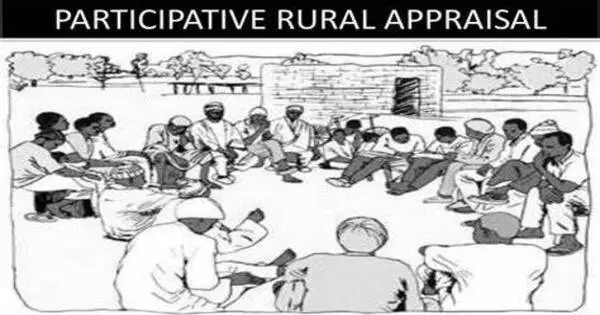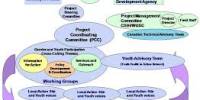Participatory rural appraisal (PRA) is a development methodology as well as a set of tools and strategies used in rural and community development contexts. Non-governmental organizations (NGOs) and other bodies interested in international development employ this technique. PRA is a bottom-up, participatory approach to development that tries to involve local populations in the planning, implementation, and assessment of initiatives.
The strategy seeks to incorporate rural people’s expertise and opinions into the design and management of development projects and programs. It is intended to empower locals by providing them with a voice in decision-making processes that influence their lives.
Origins
The intellectual foundations of participatory rural assessment approaches can be traced back to activist adult education methods such as those of Paulo Freire and the Antigonish Movement’s study clubs. According to this viewpoint, successful rural community development requires an actively engaged and empowered local populace. Robert Chambers, a significant proponent of PRA, said that the approach is heavily influenced by “the Freirian theme, that poor and exploited people can and should be enabled to analyze their own reality.”
Key features and methods of Participatory Rural Appraisal include:
- Participation: PRA prioritizes involving local people, including women and underprivileged groups, in all stages of a project. This involvement is regarded as critical to the effectiveness and sustainability of development programs.
- Qualitative Data Collection: PRA collects data using qualitative methodologies. Transect walks, social mapping, seasonal calendars, and focus group talks are examples of such strategies. These techniques aid in the collection of data regarding the local environment, livelihoods, social structures, and community priorities.
- Visual Tools: To promote communication and comprehension among participants, PRA frequently use visual aids like as maps, graphs, and drawings. These techniques are particularly useful in settings where literacy levels are low.
- Facilitation: PRA is usually facilitated by trained individuals or teams who guide the community through the process, ensuring that everyone has a chance to contribute and that discussions remain focused.
Adaptability
PRA can be tailored to different cultural and geographical situations, and the specific methodologies employed may alter based on the community and the assessment’s aims.
PRA is frequently used in development initiatives involving agricultural, natural resource management, health, education, and community infrastructure. It is a great tool for learning about the needs and ambitions of rural and underprivileged populations, allowing development organizations to better customize their actions to address these requirements.
















